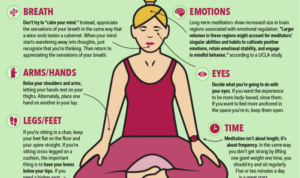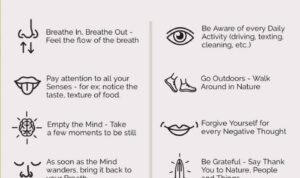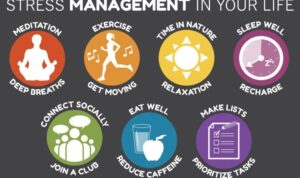Mental Wellness Tips are crucial for maintaining a healthy lifestyle, impacting daily routines and productivity. Let’s dive into practical strategies and self-care practices that can enhance your mental well-being.
Importance of Mental Wellness
Maintaining mental wellness is crucial for overall health as it directly impacts how we think, feel, and act on a daily basis. A healthy mind contributes to better decision-making, problem-solving, and coping with stress, leading to improved physical health and overall well-being.
Impact on Daily Life and Productivity
Mental wellness plays a significant role in our daily lives and productivity. When we prioritize our mental health, we are better equipped to handle challenges, maintain focus, and stay motivated to achieve our goals. This positive mindset not only enhances our performance at work or school but also strengthens our relationships with others.
Quality of Life Benefits
- Improved emotional stability and resilience in the face of adversity.
- Enhanced self-esteem and confidence, leading to a more positive outlook on life.
- Reduced risk of developing mental health disorders such as anxiety and depression.
- Better communication and problem-solving skills, fostering healthier relationships.
- Increased overall happiness and life satisfaction.
Strategies for Improving Mental Wellness: Mental Wellness Tips
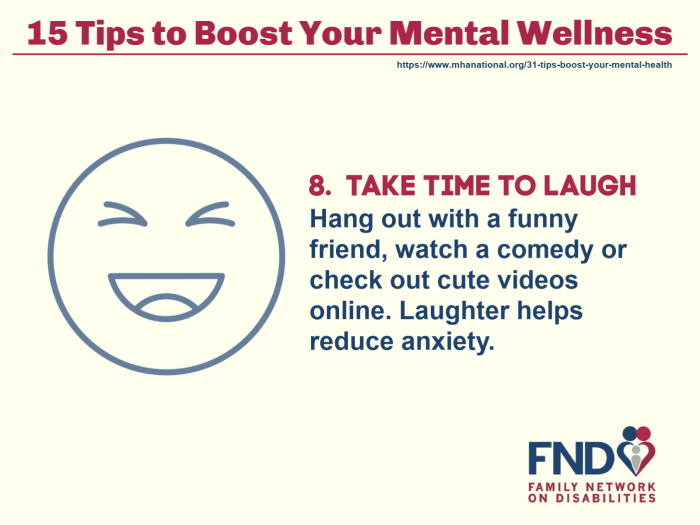
Stress and anxiety can take a toll on our mental health, but there are practical tips to help reduce these negative feelings and promote overall well-being.
Practical Tips for Reducing Stress and Anxiety
- Practice deep breathing exercises to calm your mind and body.
- Engage in activities you enjoy, such as hobbies or spending time with loved ones.
- Avoid overthinking and focus on the present moment.
- Set boundaries and learn to say no when necessary.
Benefits of Mindfulness and Meditation Practices
- Mindfulness helps increase self-awareness and reduce rumination.
- Meditation can improve focus, reduce stress, and enhance emotional well-being.
- Both practices promote a sense of inner peace and overall mental clarity.
Incorporating Physical Exercise into a Mental Wellness Routine
- Regular exercise releases endorphins, which are known as “feel-good” hormones.
- Physical activity can help reduce symptoms of anxiety and depression.
- Choose activities you enjoy, whether it’s yoga, running, or dancing, to make exercise a fun part of your routine.
Self-Care Practices for Mental Wellness
Self-care is a crucial concept for maintaining good mental health. It involves taking intentional actions to prioritize your well-being and reduce stress levels in your daily life.
Activities to Promote Relaxation
- Practice mindfulness and meditation to calm the mind and focus on the present moment.
- Engage in deep breathing exercises to reduce anxiety and promote relaxation.
- Take soothing baths or showers to unwind and relieve tension in your body.
Activities to Reduce Burnout
- Set boundaries in your personal and professional life to prevent overextending yourself.
- Schedule regular breaks throughout the day to rest and recharge your mind and body.
- Prioritize sleep and ensure you are getting enough rest to prevent burnout and exhaustion.
Role of Hobbies and Interests
Engaging in hobbies and interests plays a significant role in improving mental wellness by providing a sense of fulfillment and joy outside of work or responsibilities. Whether it’s painting, gardening, playing music, or any other activity you enjoy, hobbies can act as a form of self-expression and relaxation. Taking time to pursue your interests can help reduce stress, boost creativity, and enhance overall well-being.
Building Resilience and Coping Mechanisms
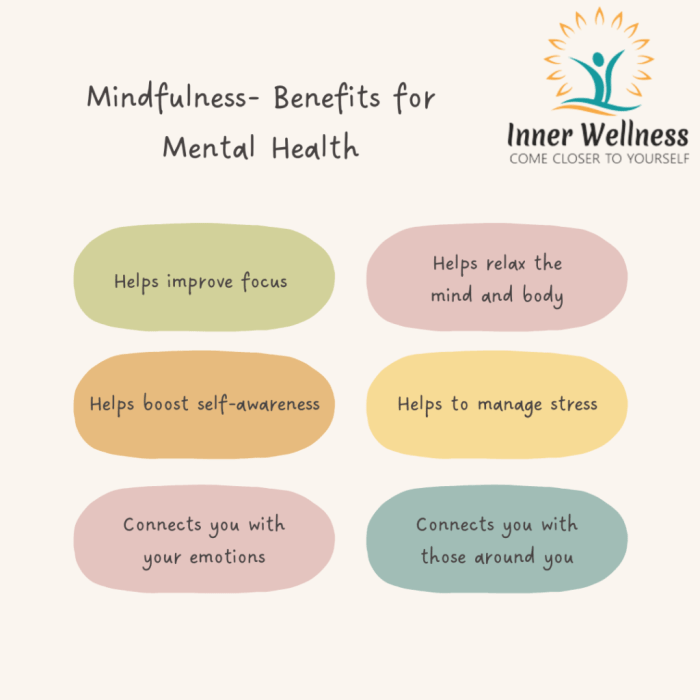
Building resilience is essential for navigating life’s challenges and setbacks. It involves developing the ability to bounce back and adapt in the face of adversity. Coping mechanisms, on the other hand, are strategies individuals use to manage difficult emotions and situations effectively. Seeking professional help when needed is also crucial for maintaining mental well-being.
Techniques for Building Resilience
- Practice self-care: Engage in activities that bring you joy and relaxation, such as exercise, meditation, or hobbies.
- Cultivate a strong support system: Surround yourself with friends, family, or a therapist who can provide encouragement and guidance.
- Develop problem-solving skills: Learn to approach challenges with a positive mindset and find solutions to overcome them.
- Stay flexible: Adapt to change and embrace new opportunities for growth and development.
Coping Mechanisms for Dealing with Difficult Emotions
- Practice mindfulness: Stay present in the moment and acknowledge your emotions without judgment.
- Engage in physical activity: Exercise can help release stress and improve your mood.
- Express yourself creatively: Writing, painting, or music can be therapeutic outlets for processing emotions.
- Seek social support: Talk to trusted individuals about your feelings and seek comfort in their understanding.
Importance of Seeking Professional Help, Mental Wellness Tips
- Therapists and counselors can provide specialized support and guidance tailored to your individual needs.
- Professional help can offer coping strategies, tools, and techniques to manage mental health challenges effectively.
- Seeking help is a sign of strength and self-awareness, demonstrating a commitment to your well-being and growth.









